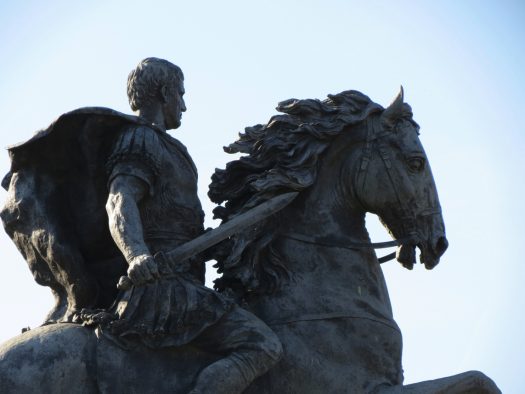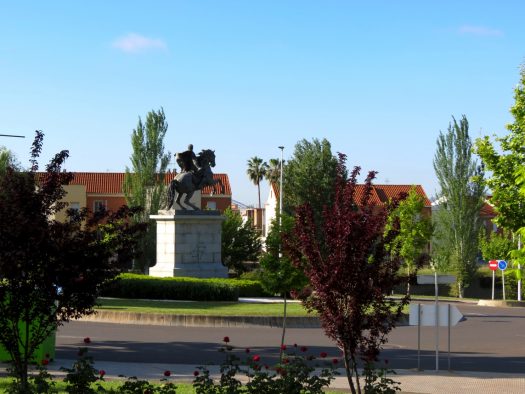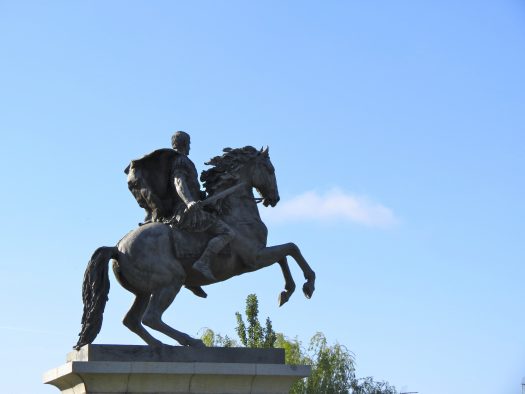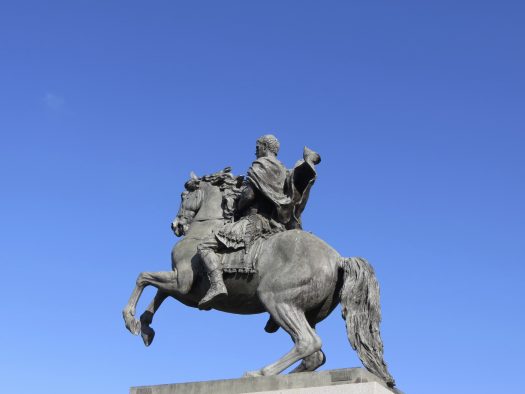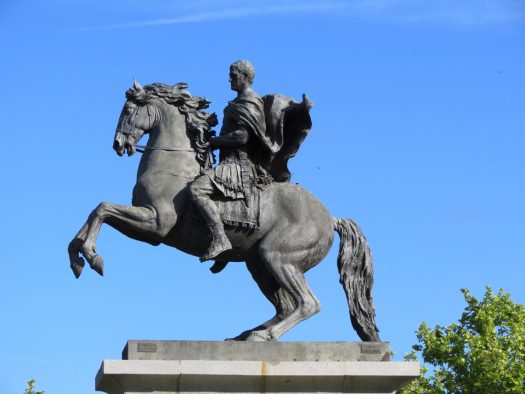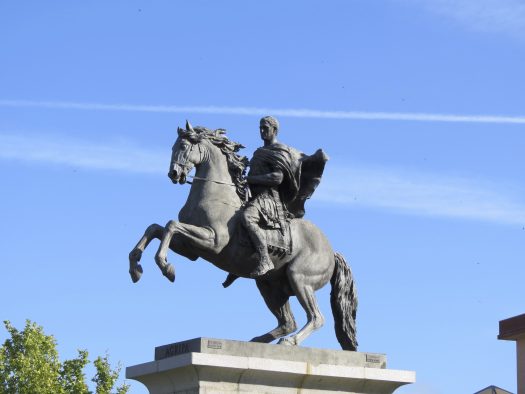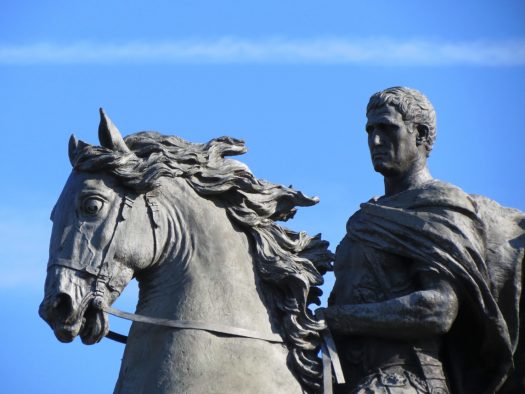Home | Agrippa, Marcus Vipsanius
- CountrySpain
- Town:Merida
-
Year of creation:2007
- Rider(s):Agrippa, Marcus Vipsanius
(c.63 – 12 BC) was a Roman general, statesman and architect. He was a close friend, son-in-law, and lieutenant to Augustus and was responsible for the construction of some of the most notable buildings in the history of Rome and for important military victories, most notably at the Battle of Actium in 31 BC against the forces of Mark Antony and Cleopatra. As a result of these victories, Octavian became the first Roman Emperor, adopting the name of Augustus Caesar. Agrippa assisted Augustus in making Rome “a city of marble” and renovating aqueducts to give all Romans, from every social class, access to the highest quality public services. He was responsible for the creation of many baths, porticoes and gardens, as well as the original Pantheon.
- Sculptor(s):Zancada, Eduardo
1946 is a Spanish sculptor
-
Mérida has been populated since prehistoric times as demonstrated by a prestigious hoard of gold jewellery that was excavated from a girl’s grave in 1870. The town was founded in 25 BC, with the name of Emerita Augusta (meaning the veterans of the army of Augustus, who founded the city; the name Mérida is an evolution of this) by order of Emperor Augustus, to protect a pass and a bridge over the Guadiana river. The city became the capital of Lusitania province, and one of the most important cities in the Roman empire. Mérida preserves more important ancient Roman monuments than any other city in Spain, including a triumphal arch of the age of Trajan.

